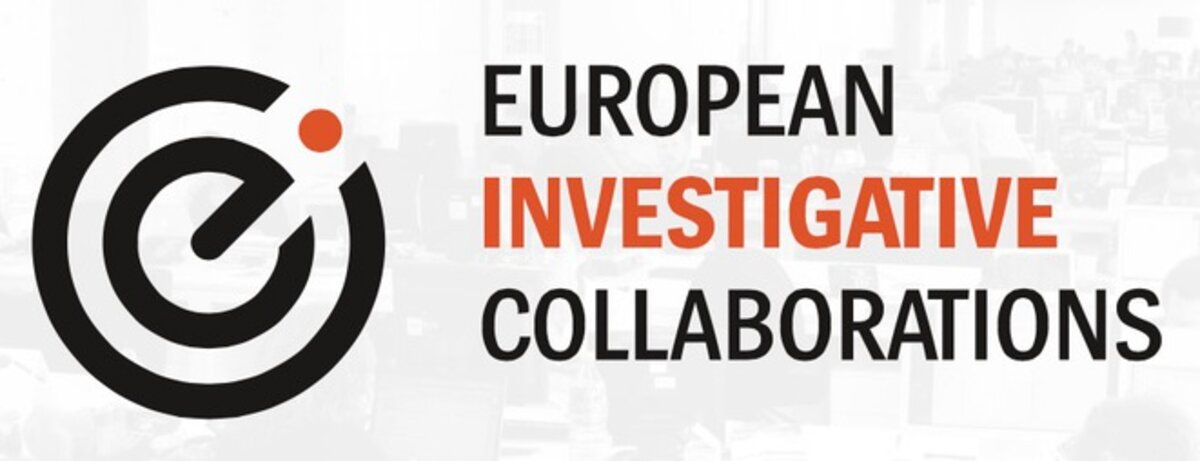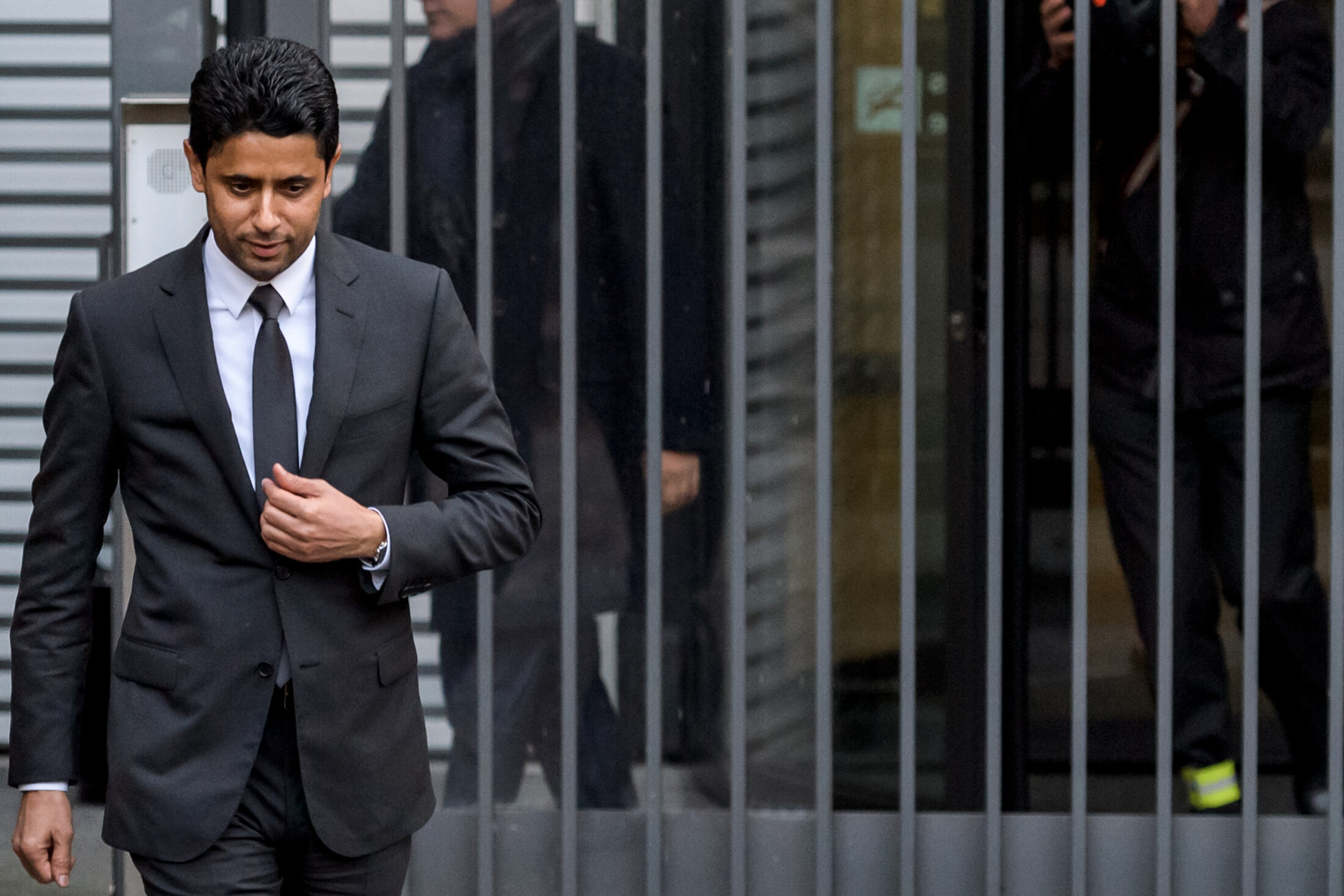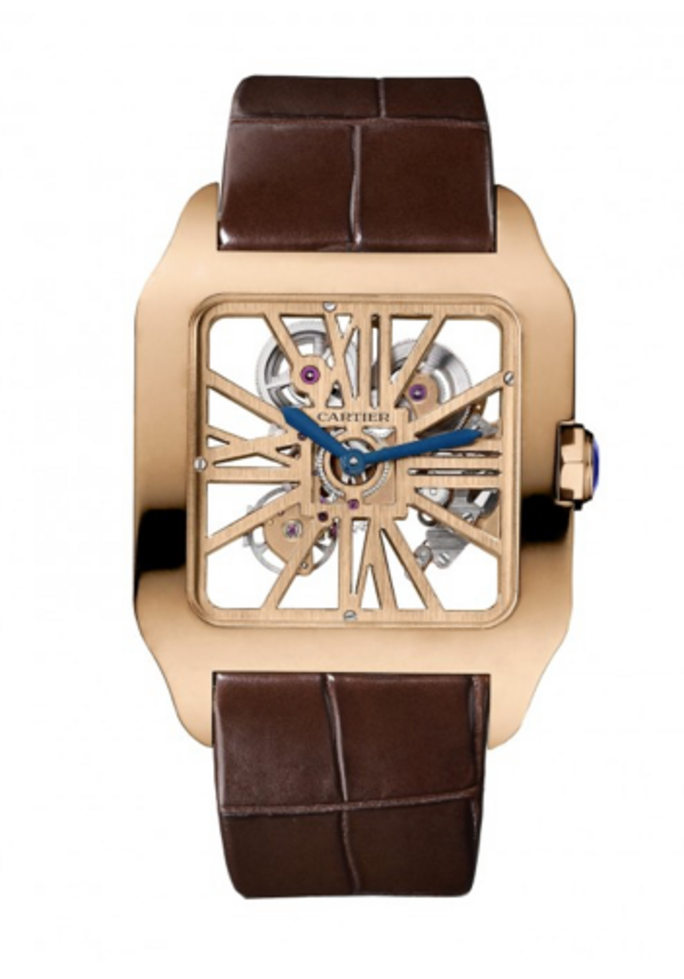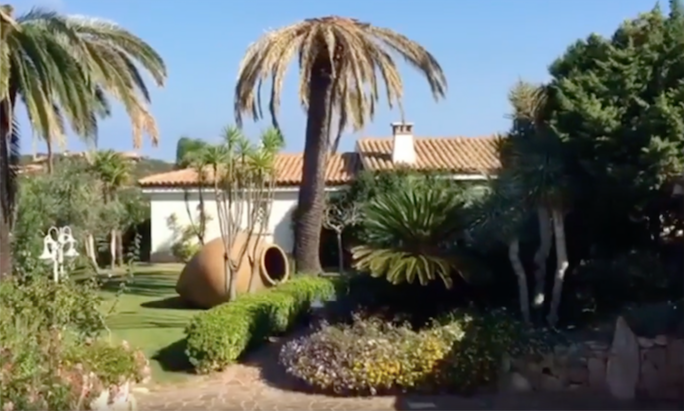Between 2013 and 2015, Paris Saint-Germain (PSG) football club boss and head of beIN Media Group, Nasser al-Khelaifi, showed great generosity towards Jérôme Valcke, then secretary general of global football governing body FIFA, as further detailed in this investigation by Mediapart and its media partners in the journalistic consortium European Investigative Collaborations (EIC).

Enlargement : Illustration 1

Meanwhile, after a three-year corruption probe targeting the two men led by federal prosecutors in Switzerland, prompted by a complaint filed by FIFA, which is headquartered in Zurich, which related to the awarding of 2026 and 2030 World Cup broadcast rights to the beIN Sports channel, the Swiss attorney general’s office announced in February that it had abandoned all but one of its indictment procedures.
Instead of facing trial on corruption charges, Valcke, 59, a former French sports journalist, is to stand trial for a lesser charge of "aggravated criminal mismanagement", while al-Khelaifi, 46, and another person who was not named, are charged with "inciting aggravated criminal mismanagement" in a case due to be heard in September.
Both al-Khelaifi and Valcke firmly deny any wrongdoing.
In its indictment against al-Khelaifi, the Swiss Attorney General’s office detailed how the beIN boss and PSG president purchased and then placed at Valcke’s rent-free disposition a luxurious villa the Qatari had bought in the Italian island of Sardinia, representing an advantage for Valcke valued at between 900,000 euros and 1.8 million euros.
But the Swiss prosecutors, who had planned to try al-Khelaifi for corruption, were forced to abandon their case after FIFA dropped its criminal complaint against the Qatari executive following an amicable agreement reached between the federation and him in January.
Following that, al-Khelaifi issued a statement which began: “I have been cleared of all suspicions of bribery and the case has been dismissed definitively and conclusively. While a secondary technical charge remains outstanding, I have every expectation that this will be proven completely groundless.”
Al-Khelaifi was also suspected of bribery over an expensive Cartier watch offered to Valcke who, as FIFA secretary general was effectively the body’s second-most powerful executive. But it was the prosecutors themselves who decided to drop that case because, they wrote in a statement issued in February, “the suspicion that Valcke accepted a luxury watch that al-Khelaifi offered him in return for exerting his influence as Secretary General of FIFA was not found to be substantiated”.
The details established by the investigation into the gift of the watch could have proven embarrassing for al-Khelaïfi and FIFA, as illustrated by judicial documents seen by Mediapart and its partners in the EIC.
Material elements also reinforce suggestions that Qatar, through the involvement of al-Khelaifi and beIN Sports, may have provided Valcke and FIFA with favours in order to obtain the agreement that the 2022 World Cup hosted by Qatar could be played in winter, as opposed to the normal summer period.

Enlargement : Illustration 2

Nasser al-Khelaifi declined to be interviewed by Mediapart about precise details which have emerged in this investigation. Mediapart and the EIC were told by his lawyers that the allegations in this report were “ridiculous”, and that there was no link between the beIN contract for TV rights to World Cup games, the Italian villa and the holding of the 2022 World Cup in winter. They also accused Mediapart of a biased investigation that had a “narrow, predetermined and deeply biased agenda”. They added that the abandonment of the official proceedings into the case of the watch was because the allegations “did not have, and never had, any factual basis whatsoever”.
Qatar was awarded the 2022 tournament, the world’s most prestigious football competition, in 2010. At the time, FIFA executives knew that to play the games during the normal period of the summer would be impossible due to the heat in the gulf state at that time of the year. But reaching a decision on the issue dragged on over five years, during which Qatar put every effort into retaining the hosting of the competition.
The final stage in reaching that decision was played out on February 24th 2015, when Jérôme Valcke and a FIFA delegation were in the Qatari capital Doha for a crucial meeting on the calendar for the games.
At midday that same day, the FIFA delegation’s special committee into the 2022 games recommended they should be played in November and December. It was then up to the FIFA executive committee to validate the recommendation, which it would do seven months later.
Shortly after the meeting, at 12.30 pm, Al-Khelaifi and Valcke held a secret one-and-a-half-hour meeting at the headquarters of the Qatari tennis federation, which was presided by al-Khelaifi. At 2.19pm, just after leaving his host, Valcke sent a phone text message to al-Khelaifi which read: “Thank you Nasser. Anything you need you know you can count on me”. Al-Khelaifi replied: “You are the best”.
Questioned by Swiss prosecutors about that confidential meeting, Valcke said it was an amicable appointment, with no link to the question of the World Cup, and that his text message was a simple expression of friendship that concerned no matter in particular.

During the afternoon of February 24th 2015, Valcke visited the site of one of the stadiums to be built for the 2022 World Cup, and returned to his hotel at about 6pm. In his room he was to discover, on the bed, a Cartier watch in rose gold, a model called Santos Dumont Squelette, worth around 40,000 euros. At 6.05pm, Valcke sent a phone text message to his wife along with a photo of the watch. “Gift from Nasser,” he wrote. “Wooioowwwwwew,” she replied, “For what???” Valcke replied: “Just a gift”.
The FIFA secretary general then, at 6.14pm, sent a text message to al-Khelaifi. “Thank you Nasser for your gift. Beautiful”, it read. Fifteen minutes later, Valcke sent another text message to al-Khelaifi, alerting him that the “guaranty is about another model than the watch in the box!”.
In their report on the abandoning of proceedings against Valcke and al-Khelaifi over suspected bribery behind the gift, the Swiss prosecutors said that Valcke, under questioning during their investigations, had “indicated that it was clear to him that the watch had been offered to him by al-Khelaifi” and that he saw no person other than al-Khelaifi who could have offered the gift.
Al-Khelaifi, meanwhile, denied having offered the watch, pointing out that he did not reply to Valcke’s text messages and adding that the watch was “perhaps” a gift from the office of the Qatari emir.
Al-Khelaifi, who has the status of a minister in Qatar, produced a written statement from a former British ambassador to Qatar who served in the post from 1990-1993. Immediately after retiring from the diplomatic service in 2001, the former ambassador served for one year as an adviser to the Emir of Qatar, and currently works in the private sector.
In his statement, he declared that in general it was quite usual in Qatar for the palace office to offer, on its own initiative, generous gifts to visiting dignitaries, and frequently these were placed in their hotel rooms before their departure.
The former ambassador did not respond to Mediapart’s attempts to contact him.
In their report, the Swiss prosecutors said that al-Khelaifi’s denials that he offered the watch “appear unconvincing”. But they said their proceedings over the matter were dropped because there remained a “doubt” as to whether al-Khelaifi was behind the gift and their investigation had not been able “to confirm” the “initial suspicion” of bribery.
The prosecutors suspected also that al-Khelaifi, as head of the beIN Sports, may have attempted to bribe Valcke with the watch and use of the villa in Sardinia in order to obtain, in 2014, the TV rights for broadcasting in the Middle East and North Africa the 2026 and 2030 football World Cup tournaments at a knockdown price.
Al-Khelaifi’s lawyers had little difficulty in deconstructing that allegation since beIN finally bought the rights for a record sum of 480 million dollars. In a statement given to the prosecutors, a FIFA executive noted that “Nobody could compete” with the offer by beIN.
But as illustrated in previous investigations by Mediapart and the EIC, and also by the case of the watch, there was another possible motive for the generosity – supported by evidence – but which the Swiss prosecutors chose not to explore, namely the moving of the 2022 World Cup to dates in the winter.
If FIFA prevaricated for five years before deciding in Qatar’s favour, it was because holding the World cup in wintertime was a problem across the game, disrupting the traditional calendars of national football competitions and also lowering advertising income because of the other sports events happening at that same time. The dilemma was illustrated on several occasions in the relations between al-Khelaifi and Valcke.
Two days later, Valcke travelled by private jet from Zurich to Paris where he picked up al-Khelaifi and flew on to Doha for a secret meeting with the Emir of Qatar, Sheik Tamim al-Thani. The three men discussed the issue of moving the 2022 World Cup to the winter, as confirmed in Valcke’s defence statement in the case he brought against FIFA after it suspended him from his post in 2015, initially over allegations he sold World Cup tickets at inflated prices (he was finally sacked in January 2016 and subsequently banned from exercising professional activities in football for nine years).
A cloud of scandal hanging over Swiss attorney general
According to phone text messages and documents obtained by Swiss prosecutors during their investigations, in September 2013 al-Khelaifi proposed buying the Sardinian villa for Valcke who, as a result, retrieved his 500,000-euro downpayment. On October 3rd 2013, at a meeting of FIFA’s finance committee, Valcke announced that he had raised, during a “meeting with representatives from Qatar” the issue of the revenues that would be lost by holding the 2022 games in winter. The Qataris, he said, had indicated they would be ready to compensate for the losses through bonus payments “from commercial partners in Qatar”.
In November 2013, FIFA drew up a contract with beIN Sport for the partial TV rights for the World Cup tournaments in 2026 and 2030 for a price of 480 million dollars. Valcke told another meeting of the FIFA finance committee, held on December 4th 2013, that beIN had agreed “a substantial increase in the rights fees”.
Meanwhile, an earlier contract on the same subject had also been signed, and which is now amongst the evidence held by French investigating magistrates in a judicial investigation into suspected “corruption” in the handing of the 2022 World Cup to Qatar (see more here). That contract, signed in the name of beIN media group by al-Khelaifi three weeks before the December 2010 vote at FIFA to hand the 2022 games to Qatar, was for the purchase of TV rights to two World Cup tournaments for 300 million dollars, to be raised by another 100 million dollars if Qatar was given the 2022 games.
Three years later, the rights were negotiated for 480 million euros, which al-Khelaifi’s lawyers described as “the just price given the market conditions at the time”. One month after that contract was drawn up, al-Khelaifi bought the Villa Bianca in Sardinia, handing its management to one of his friends who then gave Valcke free use of it. According to a report by the Swiss prosecutors, it was planned that al-Khelaifi would “cede the ownership of the Villa Bianca to Jérôme Valcke two years from then”.

Enlargement : Illustration 4

Three years later, the rights were negotiated for 480 million euros, which al-Khelaifi’s lawyers described as “the just price given the market conditions at the time”. One month after that contract was drawn up, al-Khelaifi bought the Villa Bianca in Sardinia, handing its management to one of his friends who then gave Valcke free use of it. According to a report by the Swiss prosecutors, it was planned that al-Khelaifi would “cede the ownership of the Villa Bianca to Jérôme Valcke two years from then”.
Valcke was able to make use of the villa from March 2014. Meanwhile, the contract between FIFA and beIN was validated by the football governing body’s executive committee on March 21st, after a presentation to it made by Valcke. It was subsequently signed one month later, by Valcke on behalf of FIFA and al-Khaleifi on behalf of beIN.
After Valcke’s February 24th 2015 visit to Doha, when he received the Cartier watch and assured al-Khelaifi “Anything you need you know you can count on me”, the FIFA special committee recommended that the 2022 World Cup in Qatar could be played during the winter.
Was this series of events a succession of coincidences? Al-Khalaifi’s lawyers vigorously deny any wrongdoing on his part, and accused Mediapart of “illegitimately seeking to draw connections between a wide range of wildly different and unrelated events”.
The Swiss attorney general’s office declined Mediapart’s invitation to explain why its prosecutors chose not to investigate the possible link between the events and the 2022 World Cup.

Enlargement : Illustration 5

Meanwhile, the Swiss prosecution services are under a cloud of scandal over their handling of a vast corruption probe targeting FIFA which began in 2015. Out of dozens of different cases in the investigations, only a handful have so far been led to a conclusion. Others run the risk of being abandoned because of the time that has passed since alleged events took place – in Switzerland these are subject to a five-year statute of limitations – as was the case in an investigation into suspected payments linked to Germany’s hosting of the 2006 World Cup. In April this year, one of two probes targeting former FIFA president Sepp Blatter – concerning deals made with the Caribbean Football Union (CFU) over World Cup broadcasting rights – was dropped by the attorney general’s office without any public explanation, and against the advice of the police.
Attorney General Michael Lauber has been accused of collusion with FIFA following the Football Leaks revelations by Mediapart and the EIC about his secret meetings with FIFA’s current president Gianni Infantino. Swiss francophone daily and EIC partner La Tribune de Genève reported this April that Infantino and Lauber had discussed a probe that concerned the FIFA president in person. The report said that Infantino had wanted prosecutors to drop the case, which was indeed finally abandoned.
In June 2019, the federal criminal court removed Lauber from management of the investigations into alleged corruption at FIFA, and in March this year a watchdog authority tasked with overseeing the proper functioning of the attorney general’s office reduced his yearly pay of 300,000 Swiss francs by 8% after it found he had told falsehoods and violated prosecutors' codes of conduct in the same affair. Lauber has appealed the punishment.
Last month, the Swiss parliament’s judicial committee launched impeachment proceedings against Lauber, who has been in his job since 2012, over his handling of the FIFA probes. “The judicial committee opens an impeachment hearing when there is reasonable suspicion the accused wilfully or with gross negligence seriously violated his official duties, or otherwise has lost the ability to fulfil them," said committee chairman Andrea Caroni, explaining the move to the press on May 20th.
The scandal represents something of an opportunity for those targeted by the Swiss prosecutors in investigations into the affairs of FIFA, including Nasser al-Khelaifi. His lawyers told Mediapart that, following the conclusions announced in March by the watchdog authority’s probe into Lauber, they had launched a procedure for the “recusal of the prosecutors”, arguing that “the prosecution against our client has been wholly flawed, tainted and politically motivated”.
The Swiss attorney general’s office formerly notified al-Khaleifi and Valcke on December 9th last year that it had decided they should stand trial on corruption charges over the circumstances of the purchase and use of the villa in Sardinia. But in January this year, FIFA reached a secret amicable agreement with al-Khelaifi in which it dropped to drop its complaint relating to the awarding of 2026 and 2030 World Cup rights to beIN Sports. Under Swiss law, this automatically led the prosecutors to drop their own criminal law proceedings.
A February report in British daily The Times, citing unnamed sources, said al-Khelaifi had paid FIFA more than 1 million Swiss Francs (950,000 euros) as part of the amicable settlement.
Contacted by Mediapart, FIFA declined to explain why it had agreed to put an end to the judicial case, and which was likely to expose in public the backroom discussions around the 2022 World Cup.
According to a source familiar with the case, the agreement reached by al-Khelaifi allowed only for the criminal proceedings to be dropped, and that an internal investigation into the same events by FIFA’s ethics committee is continuing. Questioned by Mediapart, FIFA would only comment that its “independent ethics committee” never comments on its ongoing inquiries.
A journalist from German news magazine Der Spiegel, a partner of Mediapart’s in the EIC, was able to approach al-Khelaifi at the entrance to a congress of the European football governing body UEFA held in Amsterdam on March 3rd. When the PSG and beIN media boss was asked why he had accepted to sign the amicable agreement allowing him to escape prosecution, the PR director for PSG, Jean-Martial Ribes, stepped in to block access to al- Khelaifi, saying: “Wo-wo-wo, what are you asking there?” Al- Khelaifi, with a broad smile, moved on without a word into the congress centre.
The Qatari has in the past recurrently refused to reply in detail to Mediapart’s questions about precise events concerning him. His British lawyers underlined that, following earlier reports by Mediapart, they had filed a complaint in Switzerland for the alleged violation of the secrecy of official investigation files.
In February, al- Khelaifi’s Swiss lawyer Grégoire Mangeat, speaking about the use given to Valcke of the villa in Sardinia, commented: “The most important thing is that all these accusations of private corruption relating to the granting of media rights have been abandoned. These accusations, contested from the very first day, were not solid. Our client is no longer accused of anything other than one single and unique offence: of having incited Jérôme Valcke to not give back to FIFA the supposed advantages. That accusation lacks seriousness […] We are confident and will plead for an acquittal.”
Jérôme Valcke did not respond to Mediapart’s attempts to contact him. He has previously “formally” denied, through his lawyer, “to have received any undue advantage of any sort” from Nasser al-Khelaifi. He added that he believed it was “normal” that Qatar had looked at “the possibility of compensating the loss of some revenue” because of the World Cup being held in winter. He insisted that the contract signed with the beIN media group was “in conformity with FIFA practices” and allowed it to “secure” its interests.
-------------------------
If you have information of public interest you would like to pass on to Mediapart for investigation you can contact us at this email address: enquete@mediapart.fr. If you wish to send us documents for our scrutiny via our highly secure platform please go to https://www.frenchleaks.fr/ which is presented in both English and French.
-------------------------
- The original French text of this report can be found here.
English version by Graham Tearse


